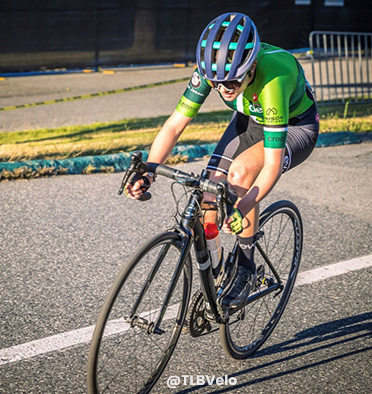We want to ensure our kids are eating right to grow, develop and thrive in their sport. It’s the number one question that I get from parents. Many sports have a demanding practice schedule and oftentimes kids are on two different teams with back-to-back practices.
It is possible to fuel a growing athlete but it takes time! As parents, we have the toughest job – shopping, cooking, preparing and feeding our kids, in between shuttling them from one practice to another. And the kids have to make time to eat, even when they are on the go or would rather lounge in bed. The job of eating gets tricky when they have practices scheduled back-to-back or right after school, with no break time in between activities.

Here are four signs that your young athlete is getting the nutrition needed for optimal growth and development:
- Eats breakfast every day: Does your child say there isn’t time for breakfast? Breakfast helps kids learn and concentrate in school and also boosts physical performance in the afternoon! Make a breakfast that has a protein, like Greek yogurt, eggs or peanut butter and milk. Have this a non-negotiable house rule: Kids can’t leave the house without eating breakfast, even if it makes them late. Turn back their bedtime if they are not getting up on time. More on sleep, bedtime routines and recovery in my next blog 😉
- Eats 3 meals and 3 snacks a day, eating every 3 hours: Do you have a kid who says he/she doesn’t have time to eat lunch? Pack him/her a lunch that is fast, easy to eat, and full of energy like a wrap or a bagel sandwich. Plan 3 snacks a day so your athlete is eating every 3 hours and timing snacks before and after each practice. Hearty snacks include fruit and yogurt, crackers and cheese or a smoothie. For young athletes in specific cases, a bedtime snack may help catch up to the demands of their training schedule. For athletes who have early dinners or late practices, a bedtime snack is helpful in refueling for their next practice.
Want to know about the latest research on bedtime snacks? Check out our blog post answering, “Are bedtime snacks ok for young athletes?” - Eats foods from each food group at meals (grains, protein, fruit/vegetable) and has at least 2 servings of milk, yogurt or cheese most days: Try to include 3 food groups in every meal: a fruit or vegetable, a grain like pasta, bread, rice, cereal or oats, and a protein like Greek yogurt, eggs, chicken, fish or beans. If you can include dairy like milk, cheese or yogurt every day, that gives kids the nutrients they need to build strong bones and muscles. If your child just doesn’t like milk or vegetables, it’s okay. Just continue to include a variety of foods at family meals. If your child has decided they want to be vegetarian, please have them meet with a dietitian to make sure they are getting all the nutrients they need.
- Gains about 10lbs per year or stays on their growth curve during their growing years: You may remember your doctor tracking your baby’s weight on a growth chart. Kids who are growing on track will follow a fairly predictable rate of weight gain until their late teen years. Of course there are always variations, especially during growth spurts, but if your child hasn’t gained weight in the last year, it could be a sign that they are not eating enough for their level of training. You can schedule a check-up with your family doctor or pediatrician if you are concerned.
Aim for the 80/20 rule, with your athelete having meals and snacks that are on track 80% of the time and 20% of the time, maybe not so much. Don’t sweat it if you hit the occasional drive thru or if weekends and holidays are a lot less structured. Start with breakfast and work on building regular meals and snacks from there. You can take the Sport Nutrition Courses for Parents for helpful tips, meal plans, lunch and snack ideas to fuel your young athlete. Encourage your athlete to take the Fuel Your Training course to learn about the basics of eating well to optimize sport nutrition for performance too.








